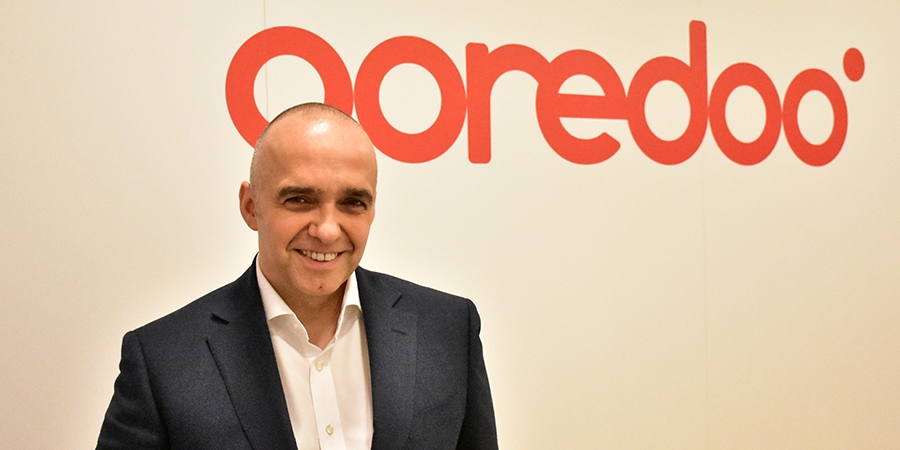In an exclusive interview with Telecom Review, Ooredoo Chief Strategy Officer, Rene Werner, shared the importance of deploying technologies in the region, Ooredoo’s new market capture strategies and other timely insights.
How will Ooredoo leverage the Mobile World Congress platform to expand its reach? What are your expectations?
This Mobile World Congress is, as it has always been, an excellent forum for the industry. Ooredoo is known for its “partnering friendliness,” with more than 250 partners globally that help us offer interesting digital services to our business and consumer customers. Obviously, the MWC is a good place to meet new service providers and also have discussions on how to develop the business and grow together. That’s our focus at the Mobile World Congress.
We have some interesting announcements to share, for example, Ooredoo’s endeavor into the FinTech space. We have achieved a solid market share in mobile money in our home market, Qatar, with Ooredoo Money, and we intend to broaden and refresh the current proposition across our footprint. Ooredoo has announced Huawei as its technology partner during the MWC.
Please tell us about Ooredoo's new market capture strategies. Who are its key partners and collaborators, both regionally and globally?
For us growth in partner services is a promising area. Today our business with partners constitutes more than approximately 20% of Ooredoo Group's cash flow, and we want to grow further. We have managed to achieve a very solid double-digit growth rate over the last couple of years in this area. One of the verticals that I already mentioned, Fintech, is at the top of our priority list which is reflected by our deal with Huawei. Another key priority area is the development of our services for the B2B market in MENA with a new agreement signed during the MWC with Microsoft for a joint go to market with cloud services. Last year we had also signed a partnership agreement with Google for various areas in digital services. I want to point these three partners out, since there have been those recent announcements. Nevertheless, all our partners across our partner portfolio are key for us to grow our business.
Ooredoo has been focusing on the development of technologies such as IoT and AI in its operations. Please give us an idea as to which customer segment is likely to benefit from it and why.
For us IoT is not only an internal but also an external opportunity. We currently offer to various car manufacturers IoT connectivity in our footprint. We’ve recently had interesting wins with Toyota, Volkswagen, GM and others and see solid demand. The region is picking up, with digitalization initiatives also from governments in MENA with initiatives around smart metering, smart utility services or smart city initiatives, which all add growth momentum for us.
With regards to AI – we have a similar dual use case using AI internally and externally in our operations. As an example – based on a strong partnership with Google we have deployed AI for our call center services, have productized the AI solution together and offer this now to our enterprise customers. So, quite a few interesting developments in this space. AI is all the talk, with the development of ChatGPT and others, and we have a few further plans, which I don't want to reveal now, but we’ll have a few interesting things coming to our markets.
With strong economic headwinds palpable across the globe, how will Ooredoo navigate through the current choppy market?
In general, the industry has already seen some challenges in the past few years — with the COVID pandemic, and a few other macroeconomic headwinds as well as lift in overall inflation rates or fuel/energy prices. I think a proven strategy has been to be disciplined managing our cost structures, to review those and take initiative where required as we evolve our organizations. Areas that are relevant for future growth must be treated differently vs areas that might see less workloads in the future due to progress in areas like digitalization.
It's a general hygiene practice that I think is becoming in challenging economic environments a heightened priority.










